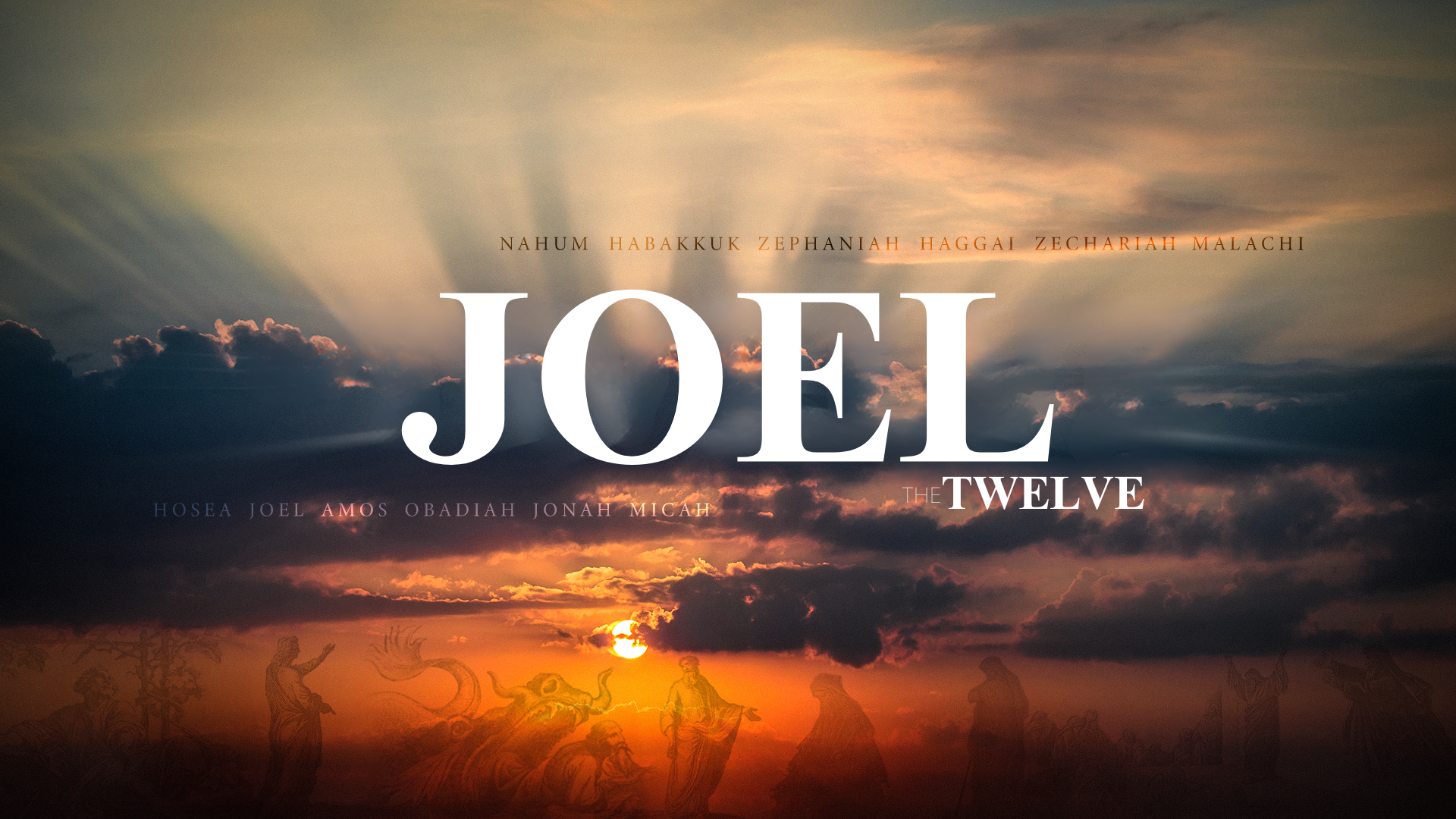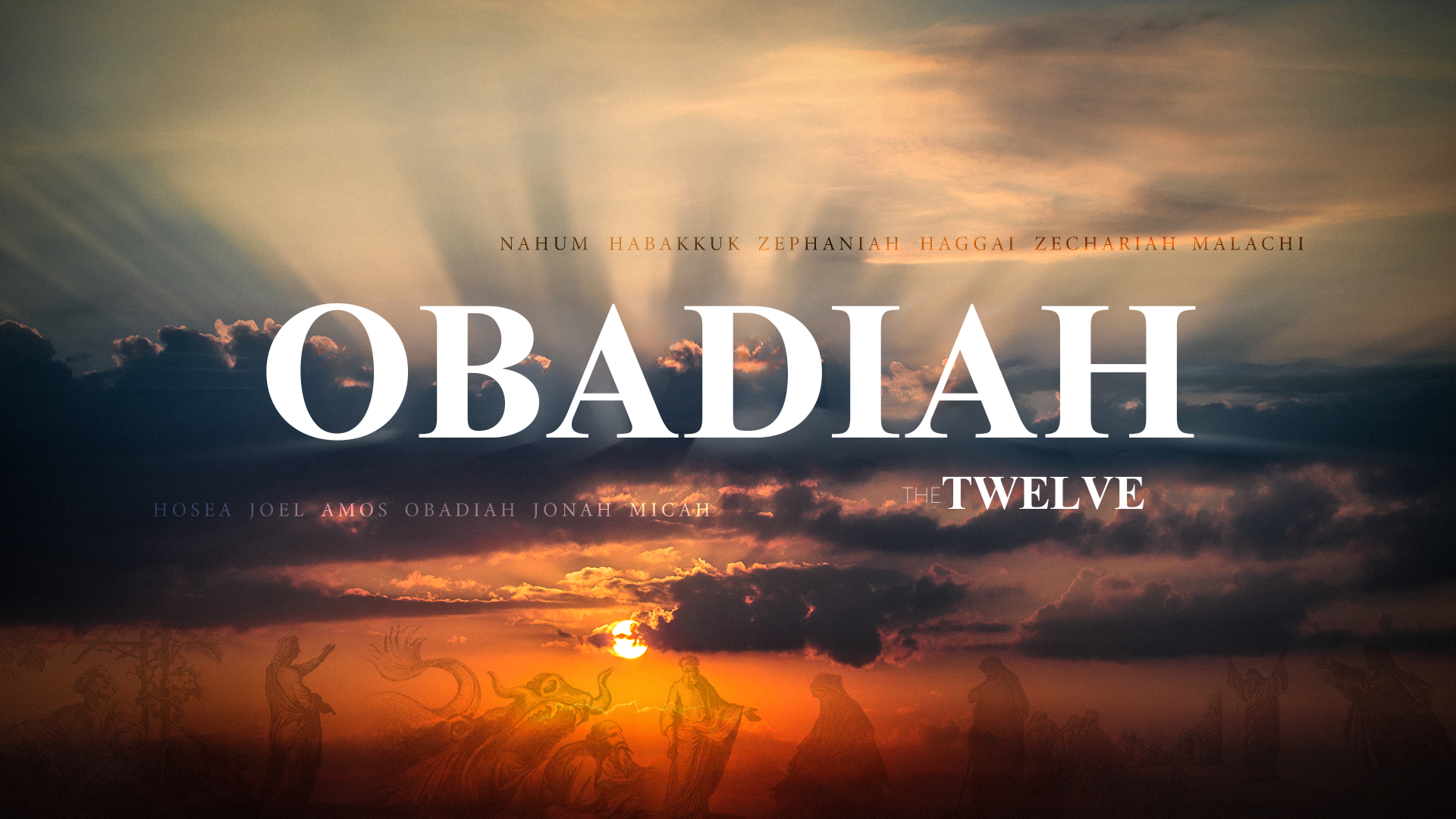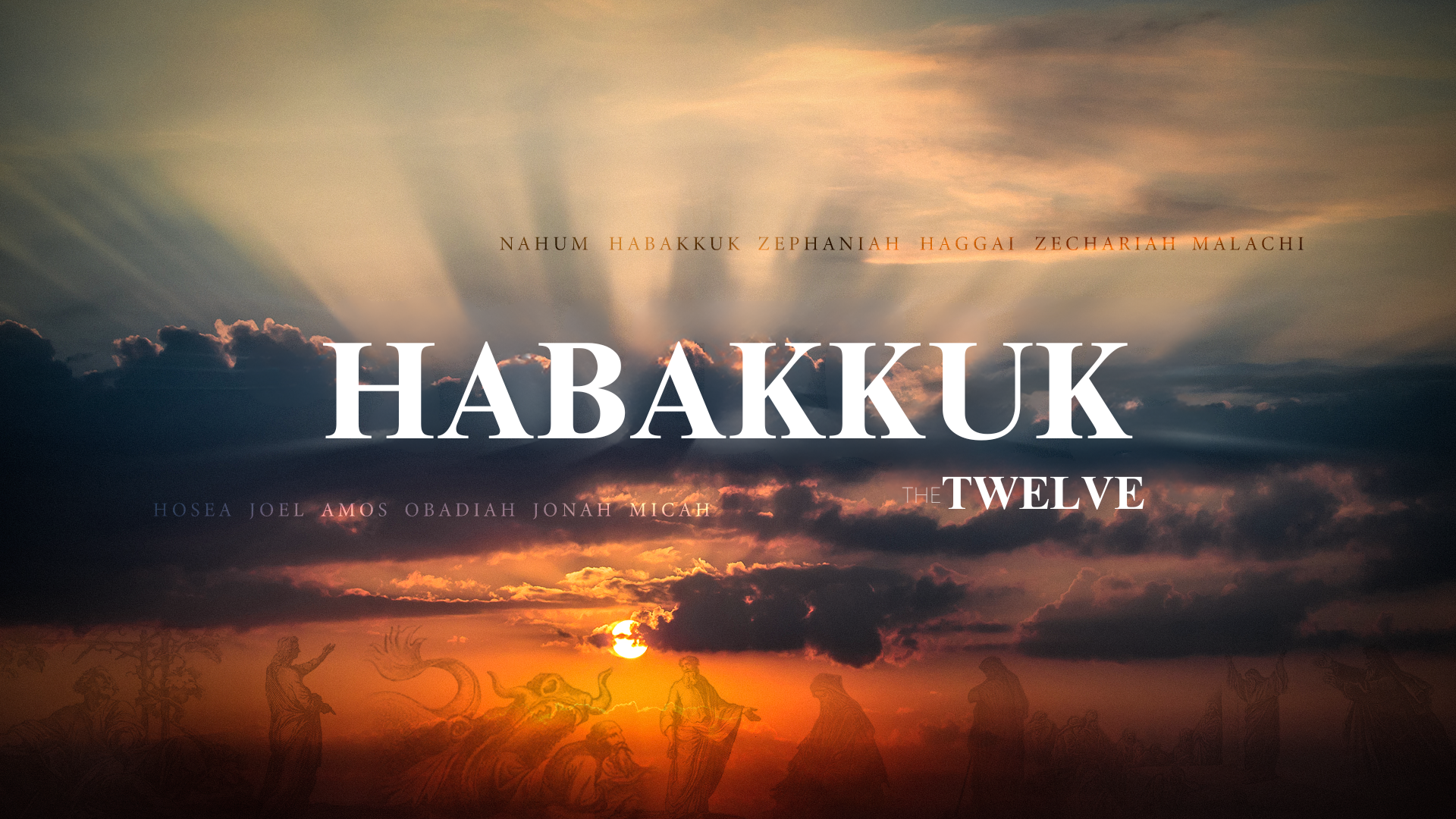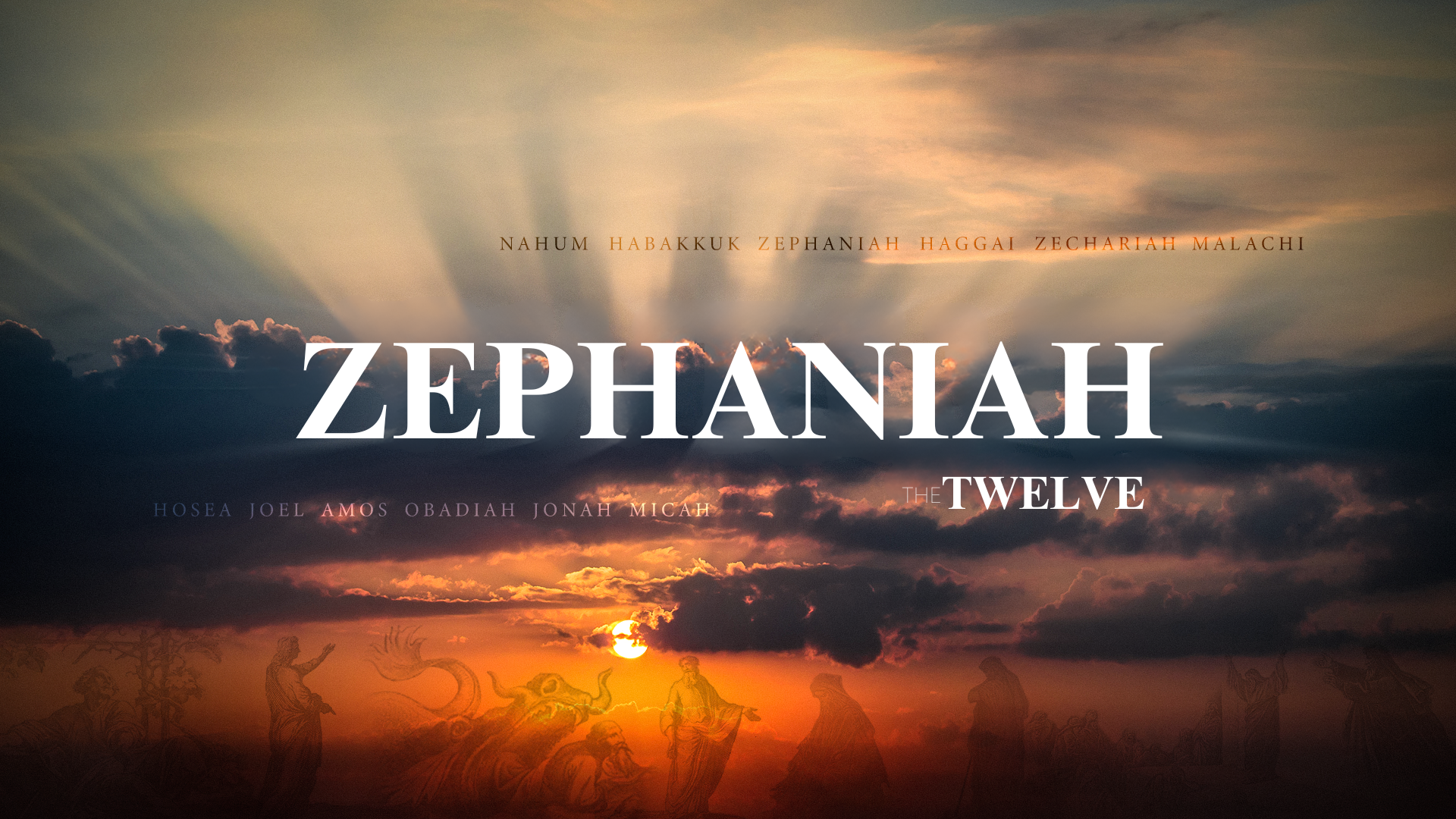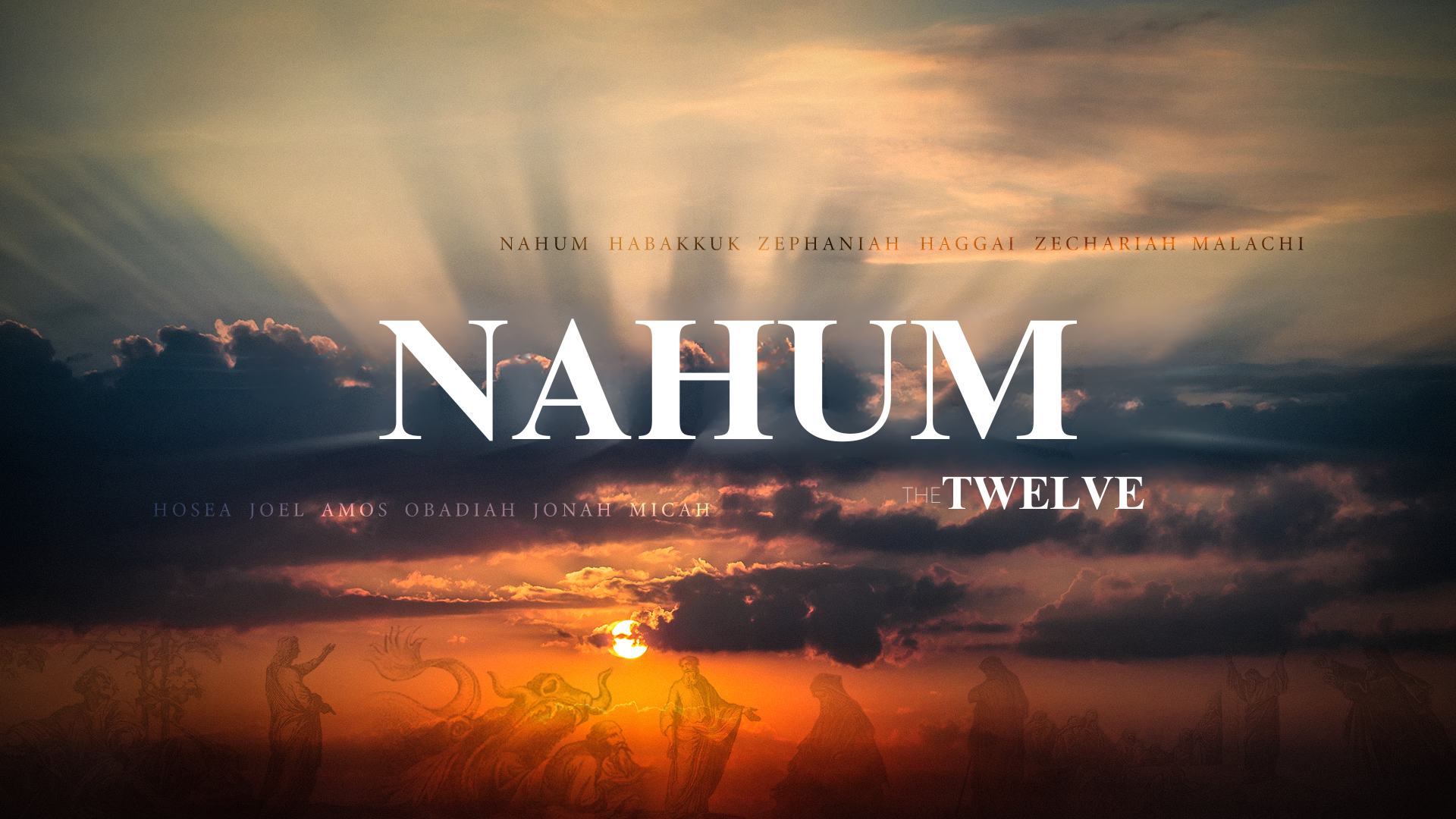MANUSCRIPT
Welcome back as we continue our study of The Twelve, the collection of prophetic books that closes the Old Testament…written by a wide variety of authors with important messages for the divided kingdoms of Israel and Judah in the period 930 to 430 BC.
I hope last week was helpful for you…the notes and slides are posted online if you care to go back and review any of the information about the lives and times of the divided kingdoms…I will say it helped me to find and think through a framework for understanding the context of this series of prophetic books…I hope it helped you, too.
Let’s reset…we know Jonah was a prophet to the northern kingdom of Israel, and he was the first of these four prophets to prophesy…his prophecy dates from the early years of the eighth century, probably about 780 BC or so…just before the beginning of the Assyrian exile, whose waves ranged from 740 BC to 722 BC…
However, this book is quite different from others in the collection, something which is very easy to notice even on your first read through it…it reads like a historical book, in the sense that it’s a single long narrative with one notable statement as a departure from the narrative style, that being Jonah’s prayer from the belly of the great fish…there is a near complete absence of prophetic message, the only exception being perhaps the very brief preaching statements Jonah makes in Nineveh…whereas the other prophetic books are largely prophetic messages, often phrased in the classic formula (“thus saith the Lord”), in the book of Jonah, the message isn’t a message, it’s an experience…it’s the prophet’s story, not his words, that comprise the book.
All of which makes us wonder why the book was included in the Hebrew canon as a prophetic book…the answer that makes the most sense is that it was because Jonah himself was a prophet, and his experience was a sort of living prophetic word from God.
We don’t know the author…it could be Jonah himself, or someone who heard the narrative from Jonah…if it was Jonah, he wrote about himself in third person.
We find one other reference about Jonah in the OT…it’s found in II Kings 14.23-25
23 In the fifteenth year of Amaziah the son of Joash, king of Judah, Jeroboam the son of Joash, king of Israel, began to reign in Samaria, and he reigned forty-one years. 24 And he did what was evil in the sight of the Lord. He did not depart from all the sins of Jeroboam the son of Nebat, which he made Israel to sin. 25 He restored the border of Israel from Lebo-hamath as far as the Sea of the Arabah, according to the word of the Lord, the God of Israel, which he spoke by his servant Jonah the son of Amittai, the prophet, who was from Gath-hepher.
It’s clear that Jonah was a prophet of blessing to the northern kingdom of Israel, likely a popular character in the day…that which he prophesied to Israel, and that which was fulfilled by Jeroboam II, was a restoration of the border of the kingdom from Lebo-Hamath, a border town far to the north, near Damascus, to the Sea of Arabah, also called the Dead Sea, far to the south…it’s a remarkably large territory, and this would have been a welcome message to the king and the people…
II Kings 14.26-29 26 For the Lord saw that the affliction of Israel was very bitter, for there was none left, bond or free, and there was none to help Israel. 27 But the Lord had not said that he would blot out the name of Israel from under heaven, so he saved them by the hand of Jeroboam the son of Joash. 28 Now the rest of the acts of Jeroboam and all that he did, and his might, how he fought, and how he restored Damascus and Hamath to Judah in Israel, are they not written in the Book of the Chronicles of the Kings of Israel? 29 And Jeroboam slept with his fathers, the kings of Israel, and Zechariah his son reigned in his place.
But let me jump ahead for just a moment…the nation of Israel, and the king of Israel at that time, Jeroboam II, continued their slide into apostasy and wickedness, and Jonah’s prophecy and the blessing given to Jeroboam was temporary…we see another prophecy in the book of Amos, only 20 years later, predicting that eventually Assyria would rise and oppress Israel from the north to the south…
“For behold, I will raise up against you a nation,
O house of Israel,” declares the LORD, the God of hosts;
“and they shall oppress you from Lebo-hamath
to the Brook of the Arabah.”
This sets the stage for the coming Assyrian conquest of Israel and their exile.
Jonah, whose name means “dove,” is the son of a prophet named Amittai, whose name means “truth” or “truthful.”
Jonah is one of the few prophets whose hometown we know…he was from Gath-Hepher, a town in the allocation of land to the tribe of Zebulun, centrally located in the north, between Mt Carmel on the Mediterranean coast and the Sea of Galilee to the east.
We need to address something, but I think a brief mention will suffice…if you do any reading or study about this book, you’ll notice that few scholars actually believe this is an historically accurate, literally true account of a real experience of a real prophet named Jonah…the world, and a majority of biblical commentators, dismiss this book as a myth, legend, allegory, parable, or some other non-literal story…the issue with that, though, is that Jonah is mentioned in the historical narrative of II Kings, as well as here, and is named, as is his father, and his hometown, and his occupation…and in three of the four gospel accounts, Jesus Christ refers to Jonah in explicit terms as a real person with a real story which happened just as it is given in the OT…in fact, Jesus references the most widely questioned passage in the book, the swallowing of Jonah by a great fish, as a historical fact…and He is so sure of the historicity of Jonah that He uses Jonah’s experience as a type of His own death, burial, and resurrection, and Jonah is the only prophet to which Jesus directly compared Himself…the Lord calls Jonah’s experience a “sign” -- Luke 11.29-30
29 When the crowds were increasing, he began to say, “This generation is an evil generation. It seeks for a sign, but no sign will be given to it except the sign of Jonah. 30 For as Jonah became a sign to the people of Nineveh, so will the Son of Man be to this generation.
So, I’m persuaded to accept the testimony of the Lord Jesus Christ that Jonah was a real man who endured the real experience of being swallowed and vomited out by a real great fish…if Jesus says that really happened, that’s good enough for me.
Let’s take a look at the first two chapters today -- a study I’m calling “Jonah, Take One.”
Turn to the first chapter as we begin…Jonah 1.1-3
Now the word of the Lord came to Jonah the son of Amittai, saying, 2 “Arise, go to Nineveh, that great city, and call out against it, for their evil has come up before me.” 3 But Jonah rose to flee to Tarshish from the presence of the Lord. He went down to Joppa and found a ship going to Tarshish. So he paid the fare and went down into it, to go with them to Tarshish, away from the presence of the Lord.
God Calls, Jonah Disobeys 1.1-17
With no prelude at all, the book begins.
What we know from the passages we’ve already examined is that Jonah is a prophet to the northern kingdom of Israel, and that his message has been a positive one, likely popular with the king and the people…the call that the Lord now lays upon Jonah is very different…he’s called to leave home and become a foreign missionary…in fact, there’s no mention of any other call like this to an ancient Jew, to go to a foreign land and preach to them a message of judgment and repentance from sin…other prophets certainly were called to pronounce God’s judgment upon foreign nations, including among the Twelve, the prophet Obadiah and his message of judgment against the nation of Edom, but I have found no one else called to go to a foreign nation and preach to them…this is another way in which Jonah is unique…this was a remarkable change, and it sets up the first point of tension in the narrative.
God said to “arise” -- Jonah arose, but not to go to Nineveh…instead of heading northeast toward the Tigris valley to Nineveh, more than 500 miles away, which was located across the river today from the Iraqi city of Mosul, Jonah turns west, traveling to Joppa, current-day Jaffa, a port city surrounded by Tel Aviv, and buys passage on most likely a Phoenician sailing vessel headed west…WAY west, to Tarshish, the farthest point in the known world, on the Iberian peninsula, known today as Spain, very possibly outside the Straits of Gibraltar, a distance from Joppa of about 2,500 miles
SLIDE 2 -- MAP
Quite a journey, isn’t it?
The text says he was trying to get away from the presence of the Lord…seems amazing, doesn’t it, for a prophet? Surely he knew that God was in Tarshish as much as He was in Gath-hepher…it’s clear Jonah knew that he couldn’t outrun God…in fact, his theology is sound throughout the book…so why would Jonah not obey God now, given that he had obeyed God before? We learn another reason in chapters 3 and 4, but I think there’s one reason that applies to us as well as Jonah…
It might be because it’s easier to obey God when the times are easy and the news is good, and people like you and your message, and you’re at home in your place of ministry…but what about when the Lord God tells you to go somewhere you don’t want to go, and gives you a message you don’t like, and tells you to deliver it to a people you hate and who hate you? Then what? This situation leads us to a question for ourselves…
SLIDE 3 -- HOW DO WE RESPOND TO CHANGE?
We shouldn’t minimize what this prophetic call meant to Jonah…it was disturbing enough for him to leave whatever family he had and his career as a prophet, and try to get as far away as he could from this…
But we sometimes experience events and calls just as earth-shaking…sometimes little changes, sometimes really big changes…when the Lord brings things like that to us, how do we respond?
Let me draw your thoughts to Proverbs 3.5-6…I know this is familiar to many of you, but let’s take a moment to consider it in the context of change…how should we respond when God brings something to us completely unexpected, that we didn’t see coming?
Trust in the LORD with all your heart,
and do not lean on your own understanding.
6 In all your ways acknowledge him,
and he will make straight your paths.
Look at the three verb phrases: “trust in the Lord” -- “don’t lean on your own understanding” -- “acknowledge Him” -- in a word, obey God.
That should be our gameplan when God brings significant change into our lives…
We determine to trust Him, trust His sovereign, loving heart, to live in faith with all our hearts…not a partial trust that applies in some parts of your life but not others; not a trust that you turn off and on when you feel like it; not a trust that folds when adversity comes; but a deep-seated trust that remains unshaken when hard times come and when the Lord hands you something you didn’t want or expect.
We determine to not trust ourselves -- not to lean on, place our trust in, rely on -- our own judgment and wisdom and decision-making ability -- it’s a very human response to take control of those choices and make those choices based on what we see and believe, but that’s not our best option…would it best for us to rely on the One with all knowledge and wisdom, who knows everything about everything, including us, or operate within just what we know and understand? It’s best if we trust in the Lord…
We determine to acknowledge Him in all our ways…which is another way of saying that we walk according to His word, even when we don’t fully understand why, and when it doesn’t make human sense, and when the world says we shouldn’t follow Him…we make up our minds ahead of time that Jesus Christ is our Lord and King, and our allegiance will be always to Him…recognize His lordship and sovereignty over our lives, and walk in obedience and diligence to what He says, not what we say or others say.
When we are living like that -- with trust in God, not ourselves, and in obedience to His Word -- the Lord can bring any change to our lives and we will not be shaken, but instead, our response will be one of faith and action.
But Jonah doesn’t trust that God knows what He is doing and that His plan is best; instead Jonah trusts in his own understanding, and ends up on a ship in the middle of a dangerous storm, a storm so violent that even the experienced Phoenician captain and crew are terrified and take extraordinary measures to try to save the ship and all the souls on board, including throwing overboard the cargo they were paid to transport.
So rather than head to Nineveh, the prophet is now in peril out at sea…he knows a lot of great theology…God really is the God of heaven, who made the sea and dry land…but he is seriously lacking in both faith and judgment…and in the interactions with the captain and the crew, it becomes clear that Jonah is the problem.
Now comes the part of the book that unbelieving critics mock and ridicule, but which Jesus Himself affirms in the gospels -- Jonah is tossed overboard and swallowed by a great fish and remains there for three days and three nights.
Much has been written both attacking this key element in the story and defending it…those who would attack it are wasting their effort and time, since it is the unassailable word of God, and in truth it needs no defense from us, but instead our call is to trust in the veracity of Scripture.
But there is a lesson here for us: never underestimate the relentless creativity of God…if you find yourself saying “oh, the Lord would never do that” or “He wouldn’t ask that of me” you should just stop where you are and consider the story of Jonah, and remember that this is the God of Creation, the Maker of Heaven and Earth, as Jonah himself said, the God of the sea and the dry land, and there’s nothing beyond His thoughts or ability.
The Lord has an infinite capacity to get our attention…true, this is one of the more dramatic examples in Scripture, but I’m sure that in your life, there have been several instances when God found a unique way to remind you of His presence…let’s hope those times didn’t involve a multi-night stay in a great fish…but all that our God has decreed and purposed, He will accomplish, even sending a stubborn and disobedient prophet to Nineveh.
God Disciplines, Jonah Repents 2.1-10
Now we’re privileged to listen in on the prayer of the prophet as he’s trapped in the belly of the great fish…which, by the way, if you’re looking for something to jumpstart a lagging prayer life, this experience is certainly on that list.
We hear the inner thoughts of a man who was running from God, but has now been pulled up short, as it were, by the discipline of the Lord.
Certainly, God could have let Jonah off the hook, or allowed Jonah to drown, and in either case chosen another prophet to carry His message, but God didn’t do that…instead, He disciplined Jonah…which raises another question for us…
SLIDE 4 -- HOW DO WE RESPOND TO DISCIPLINE?
We need to take a close look at this word “discipline” -- the Hebrew word is ‘ysr’ -- ye-sao -- and it is commonly translated “discipline” and also translated as “instruct,” “chastise,” and “rebuke” -- the corresponding Greek word is ‘paideia’ -- to correct, educate, train, or teach…it rarely has a meaning even close to “punish” -- it may seem so at the time, but the difference is in the purpose, for discipline is meant to teach and instruct, not to harm.
In fact, our NT word “disciple” means “learner” and is clearly taken from the same root.
It is often used of the activity of God with relation to the Hebrew people…Moses writes in Deuteronomy 8.2-5 of the blessing and work of God during the wilderness wanderings, and adds a telling statement at the end.
2 And you shall remember the whole way that the LORD your God has led you these forty years in the wilderness, that he might humble you, testing you to know what was in your heart, whether you would keep his commandments or not. 3 And he humbled you and let you hunger and fed you with manna, which you did not know, nor did your fathers know, that he might make you know that man does not live by bread alone, but man lives by every word that comes from the mouth of the LORD. 4 Your clothing did not wear out on you and your foot did not swell these forty years. 5 Know then in your heart that, as a man disciplines his son, the LORD your God disciplines you.
Job’s acquaintance, Eliphaz, speaks an affirmation of this truth in Job 5.17.
“Behold, blessed is the one whom God reproves; therefore despise not the discipline of the Almighty.”
Even Solomon gives us wisdom in Proverbs 3.11-12
My son do not despise the Lord's discipline or be weary of his reproof, 12 for the Lord reproves him whom he loves, as a father the son in whom he delights.
The author of Hebrews speaks about discipline as well, and give us insight into the ultimate goal of this work of God in us…Hebrews 12.7-11
7 It is for discipline that you have to endure. God is treating you as sons. For what son is there whom his father does not discipline? 8 If you are left without discipline, in which all have participated, then you are illegitimate children and not sons. 9 Besides this, we have had earthly fathers who disciplined us and we respected them. Shall we not much more be subject to the Father of spirits and live? 10 For they disciplined us for a short time as it seemed best to them, but he disciplines us for our good, that we may share his holiness. 11 For the moment all discipline seems painful rather than pleasant, but later it yields the peaceful fruit of righteousness to those who have been trained by it.
So, as we experience God’s discipline, His teaching, the objective is that by His discipline, by His training, we become more fruitful, yielding a harvest of righteousness.
How did Jonah respond to the discipline of God? We’ll see that next week…but what we know is that he was not walking in obedience to and in fellowship with God…
We have one more question to ask ourselves from Jonah’s experience…
If our review last week taught us anything about the lives of ancient Israel and Judah, it’s this: life lived disconnected from God inevitably results in, and returns to, sin.
It will help us here to review what sin is.
In Hebrew, the common word for “sin” is ‘hat-ta(t)’ meaning to miss the mark, to wrong or to do wrong, to offend, to transgress.
In Greek, the common word is ‘hamartia’ with a nearly identical meaning: to miss the mark, to offend, an offense or transgression.
Though we often hurt others in and through our sin, ultimately every sin is against God…we see that truth in David’s great penitential psalm, Psalm 51.3-4
For I know my transgressions,
and my sin is ever before me.
4 Against you, you only, have I sinned
and done what is evil in your sight,
so that you may be justified in your words
and blameless in your judgment.
As we look at sin, it’s also helpful for us to know something of how it works, how we miss the mark…we can see examples in the Ten Commandments of Exodus.
Sins of commission: doing something we should not do (committing murder or adultery, lying or coveting).
Sins of omission: not doing something we should do (failing to obey a positive command, such as failing to honor our fathers and mothers); and there’s one more.
Sins of wrong motive: Romans 14.15 -- For whatever does not proceed from faith is sin. Think of it this way: doing the right thing but for the wrong reason.
As we saw last week, Israel and Judah were both guilty of long lists of sins before God, many of which He addresses to the people through the prophets…and while they failed to turn from their sin, we as believers hear the same prophetic command from both John the Baptist and Jesus Christ Himself -- both began their preaching ministries with this message.
Matthew 3.2: In those days John the Baptist came preaching in the wilderness of Judea, 2 “Repent, for the kingdom of heaven is at hand.” (John the Baptist).
Matthew 4.17: 17 From that time Jesus began to preach, saying, “Repent, for the kingdom of heaven is at hand.” (Jesus).
And it remained a cornerstone of Jesus’s teaching: Luke 5.32
32 I have not come to call the righteous but sinners to repentance.
The Hebrew word is ‘sheen - vav - bed’ (swb) -- it means to turn back, or to return.
The Greek word is ‘metanoeo’ -- same definition, to turn back or return.
No matter the language, the meaning is clear -- we know that there is sin in our lives, and that we must forsake it, returning to God in trust and faith.
That sounds simple and even easy…but there is more to repentance than just mental or emotional assent or affirmation that we have done wrong, or even the simple act of turning away…there is another level that most Christians rarely discover and even fewer take seriously enough to act on it…Romans 8.13
13 For if you live according to the flesh you will die, but if by the Spirit you put to death the deeds of the body, you will live.
What is Paul saying in this verse?
Repentance involves more than just turning away from sin…because we will eventually turn back to it in our weakness.
True repentance means that we put to death the deeds of the body, meaning the sin of our flesh…picture it as a ravenous wolf, stalking you, seeking to devour you.
The Puritan, John Owen, once said this: you must kill sin, or it will kill you.
We still experience the desires of our flesh, which as Christ-followers we still have, as Paul said, like a corpse chained to us…but to live according to those desires of the flesh, to walk in that way, is to die…
As believers in Jesus, we are called to a different path, a different way…we are to take sin by the neck and hold it until it lies lifeless…the King James Version uses the word “mortify” -- a fitting word -- to put something to death…we must take the sinful desires of the flesh, and the deeds that are their consequence, and put them to death…then, the Word of God says, you will live.
To walk in Christ and to turn from sin is much more of a fight than we think it is, for sin will not give up without a battle; our enemies, the world, the flesh, and the devil are formidable.
So what do we learn from this disobedient and stubborn prophet?
How do we respond to change? We trust God in it.
How do we respond to discipline? We learn from it as from the hand of our Father.
How do we respond to sin? We repent of it and put it to death.

Taught by Mike Morris
Associate Pastor of Verse By Verse Fellowship
The Twelve Series
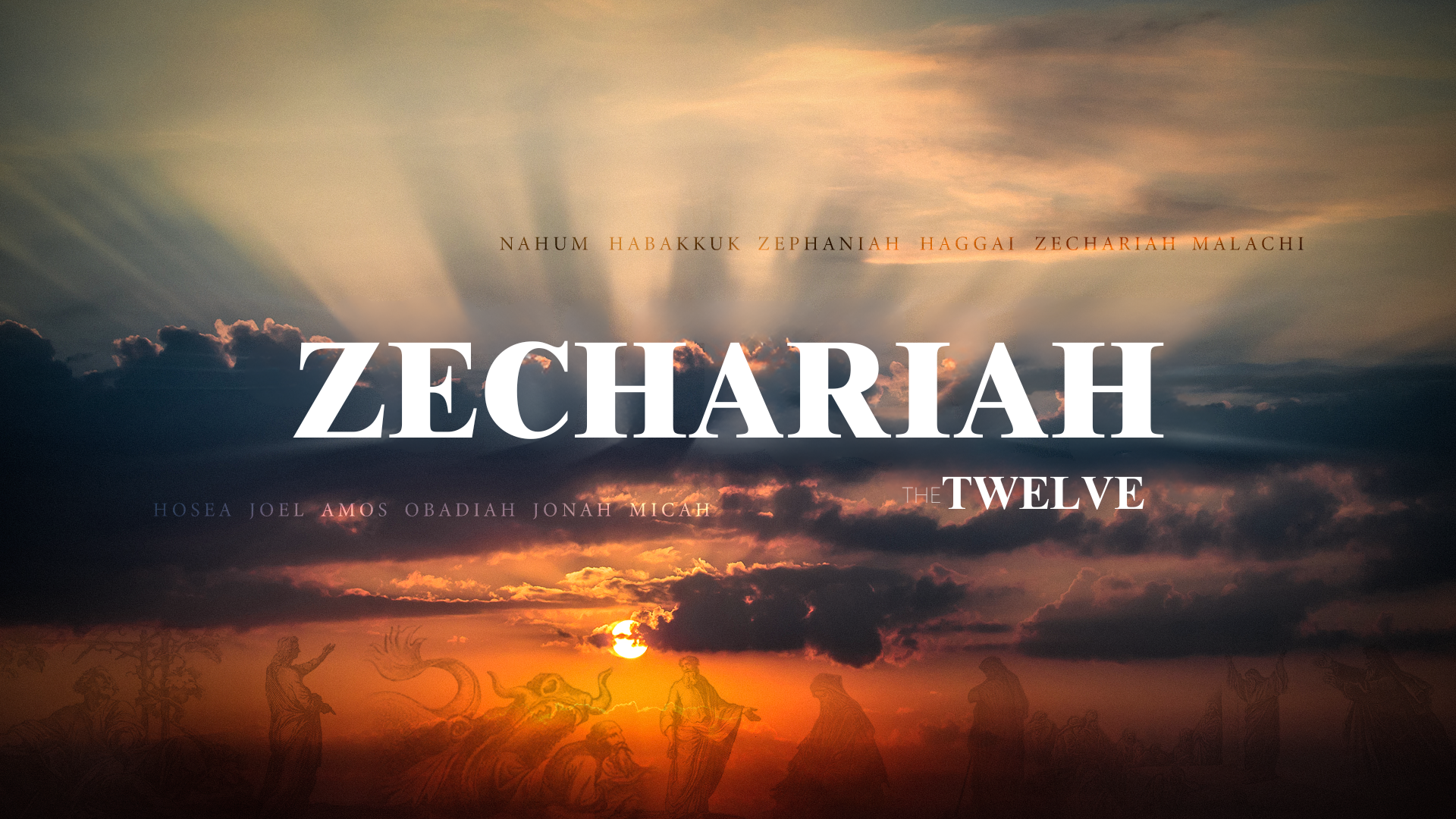





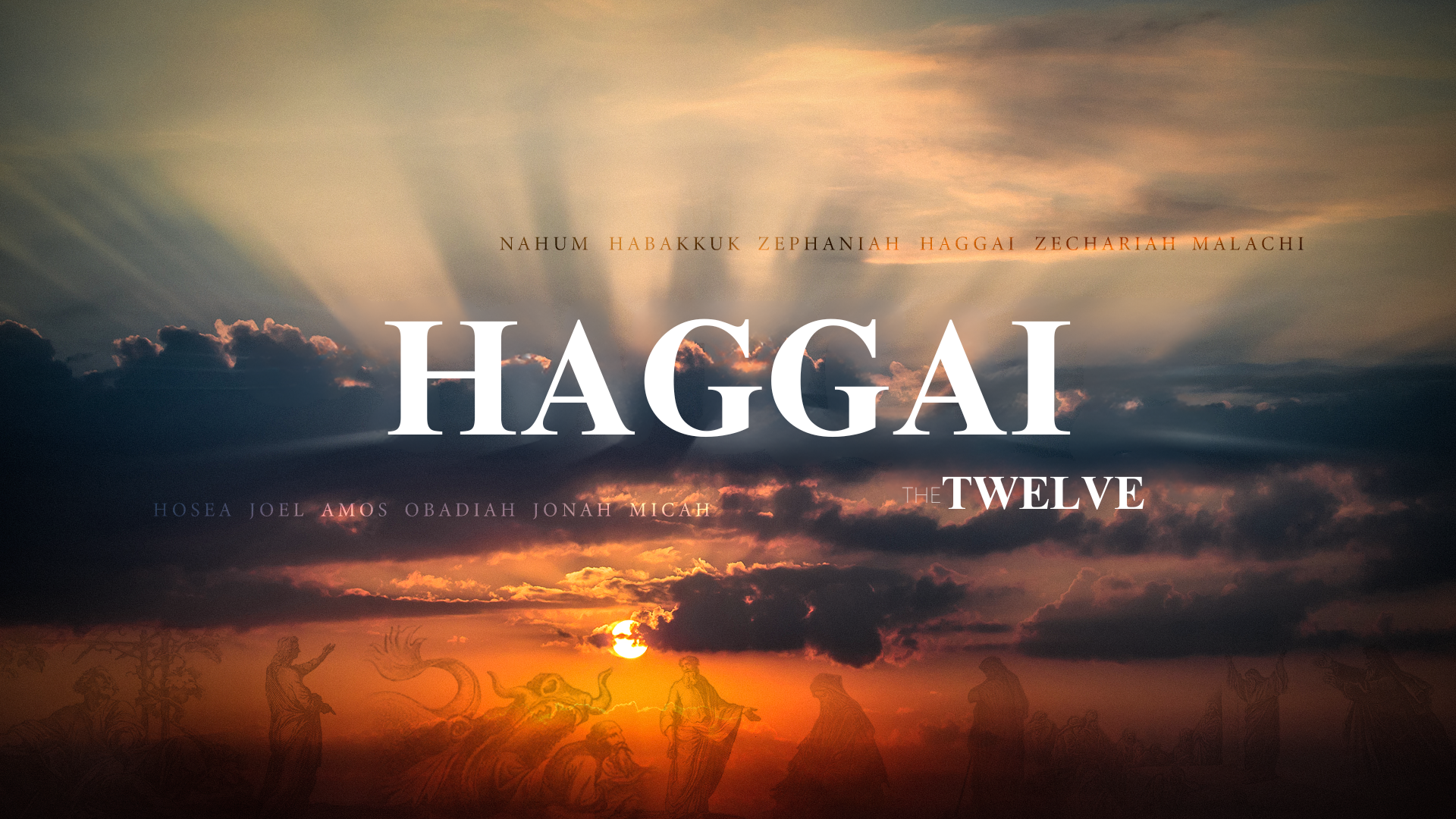


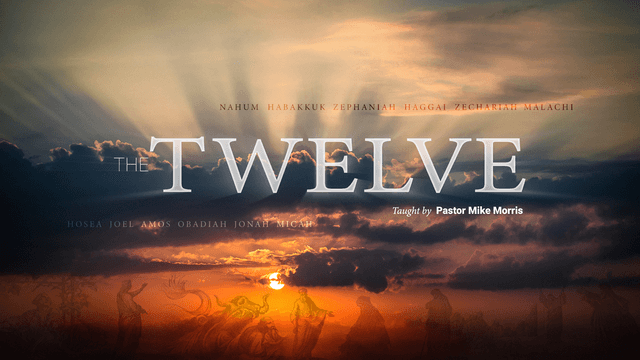









Taught by Mike Morris
Associate Pastor of Verse By Verse Fellowship


